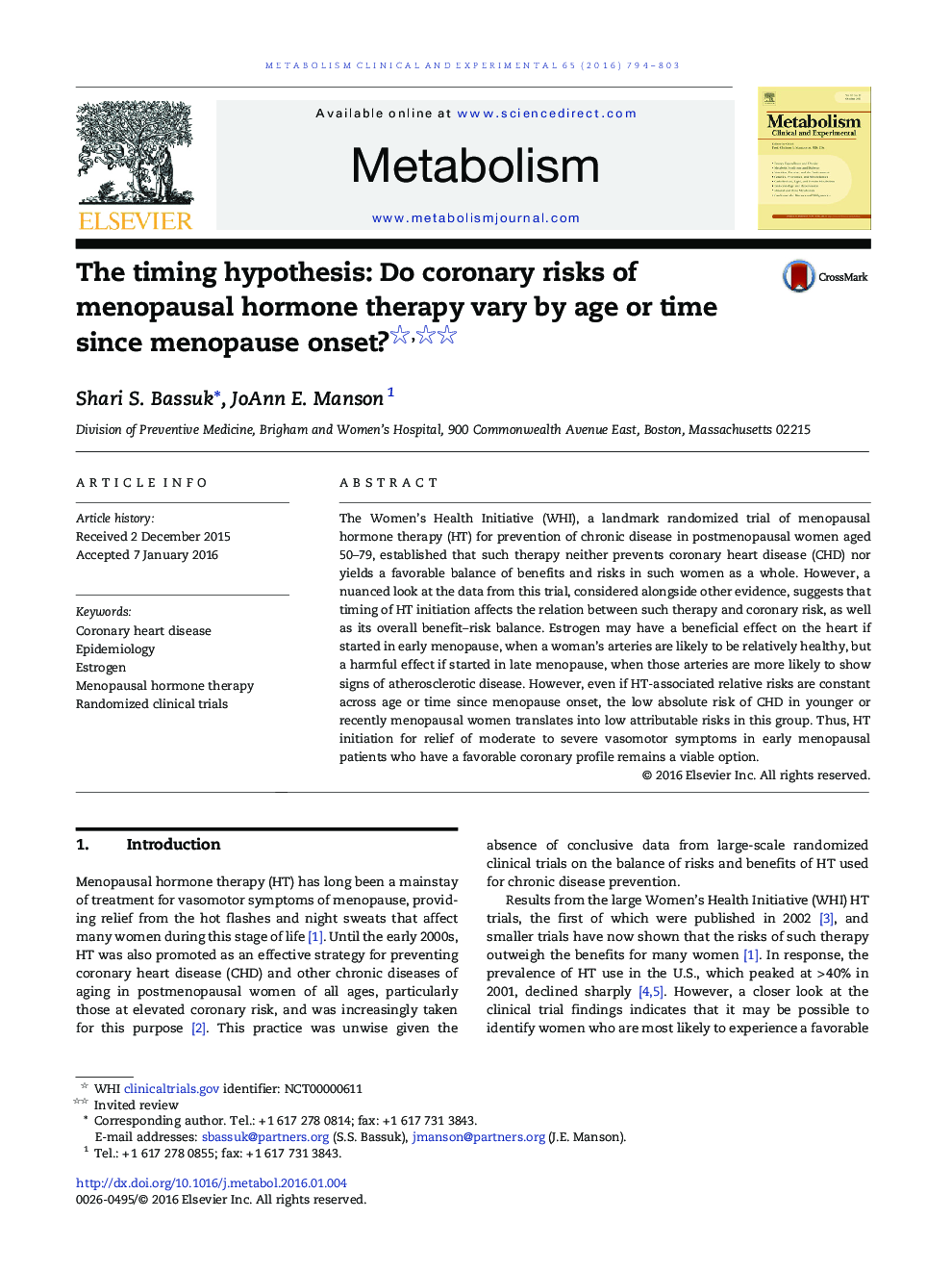| Article ID | Journal | Published Year | Pages | File Type |
|---|---|---|---|---|
| 2805459 | Metabolism | 2016 | 10 Pages |
The Women's Health Initiative (WHI), a landmark randomized trial of menopausal hormone therapy (HT) for prevention of chronic disease in postmenopausal women aged 50–79, established that such therapy neither prevents coronary heart disease (CHD) nor yields a favorable balance of benefits and risks in such women as a whole. However, a nuanced look at the data from this trial, considered alongside other evidence, suggests that timing of HT initiation affects the relation between such therapy and coronary risk, as well as its overall benefit–risk balance. Estrogen may have a beneficial effect on the heart if started in early menopause, when a woman's arteries are likely to be relatively healthy, but a harmful effect if started in late menopause, when those arteries are more likely to show signs of atherosclerotic disease. However, even if HT-associated relative risks are constant across age or time since menopause onset, the low absolute risk of CHD in younger or recently menopausal women translates into low attributable risks in this group. Thus, HT initiation for relief of moderate to severe vasomotor symptoms in early menopausal patients who have a favorable coronary profile remains a viable option.
